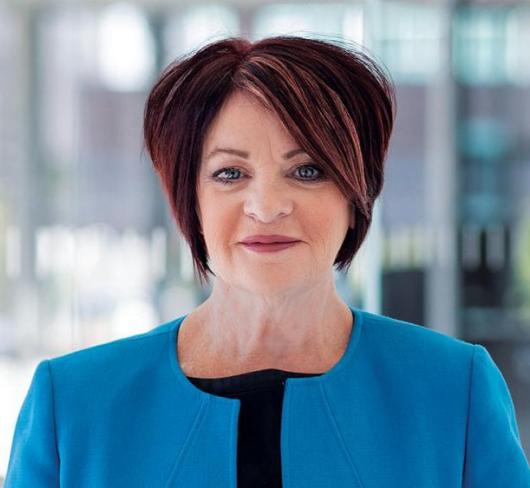Liberals Hope Education Reforms Will Boost Re-election Chances (Queens Park report)
With only a few months to go before the next provincial election, ETFO members should use their assessment skills to evaluate the Liberal government’s record and the platforms of all the political parties. Education commitments figured prominently in the 2003 Liberal election platform, and the Liberals are hoping their achievements in education will play a key role in getting them re-elected. As the election draws nearer, they are doing their best to check off their 2003 election promises.
Teacher performance appraisals
In March 2007, the government issued regulations that reform the performance appraisal process for experienced teachers. The New Teacher Induction Program (NTIP) introduced a year ago resulted from a lengthy consultation process by the government, in which ETFO was a participant. NTIP has streamlined the performance appraisal process for beginning teachers.
The process for experienced teachers will include the following components:
- a five-year cycle
- one appraisal in the evaluation year
- a two-category rating scale (satisfactory, unsatisfactory)
- one summative report form
- pre-observation and post-observation meetings
- fewer “look-fors”
- “look-fors” to be used as examples only
- a revised learning plan.
The teacher evaluation process no longer requires annual parent or student surveys. Teachers will simply be encouraged to include parent and student input when developing their annual learning plan. School boards had the option of adopting the changes as early as April, but the changes must be in place by September 2007. The Ministry of Education is now turning its attention to the evaluation process for principals and vice-principals.
Report cards
The ministry has finally responded to ETFO’s long standing concerns about the provincial report card. Next fall, for the first reporting period, nine district school boards, including Rainbow, Limestone, and Peel, will be piloting an alternative method for reporting student progress.
The federation is optimistic that the pilot projects will lead to an improved reporting process. The changes should satisfy the need of parents to be informed about their child’s progress and address workload issues for teachers.
Primary class-size cap
In March, Education Minister Kathleen Wynne announced that school boards could have an extra year, until fall 2008, to fully implement the class-size cap.
Some boards reported they were unable to make the class-size target for next year. Boards must receive ministry approval for an extension. ETFO locals will be monitoring the progress their boards make to ensure they don’t unneces- sarily delay full implementation of the cap.
The government has invested more than $90 million annually since 2004–05 to reduce the size of Primary classes. An additional 1,200 teachers have been hired each year and school boards have received funding for more classrooms.
The government’s goal is to have 90 percent of Primary classes meet the cap of 20 students and for no Primary class to have more than 23 students. The ministry’s website reports that 65 percent of Primary classes have 20 students or fewer; 93 percent have 23 or fewer; and 3 percent have more than 25.
ETFO is conducting school-based surveys to compare our data with the ministry’s and to monitor any potential increases in Junior and Intermediate class sizes. Although there are anecdotal examples of high Junior and Intermediate class sizes, our 2006–07 research indicates Junior and Intermediate class sizes are close to the required average of 25.
Safe schools
This spring the government finally introduced legislation to amend the “safe school provisions” of the Education Act that the previous Conservative government had adopted. The legislation replaces the “zero tolerance” philosophy toward antisocial behaviour with a progressive discipline approach. The changes are an important first step to addressing problematic student behaviour.
Once the legislation takes effect, teachers will no longer have the authority to suspend students for a day. Principals will lose their power to expel students.
Except for severe infractions, the new bill replaces automatic suspensions and expulsions with a requirement for principals and school boards to con- sider the mitigating circumstances for a student’s behaviour before taking disciplinary action. As of February 1, 2008 school boards will be required to provide programs for suspended and expelled students aimed at modifying negative behaviour and keeping students from dropping out. Bullying is being added as a behaviour for which students can be suspended.
For the new policy to work, the government will need to provide more resources to hire additional guidance teachers, behavioural counsellors, educational assistants, and board psychologists and social workers.
Revising the legislation has been a long process. ETFO has been lobbying for these changes since 2000, when the previous government downloaded the discipline responsibilities within the system. In December 2004, the government appointed a Safe Schools Action Team to review issues related to school safety and student discipline. The team, headed by MPP Liz Sandals, launched public consultations in November 2005 and submitted a report in June 2006
Education funding formula
The most challenging Liberal election promise was their commitment to “fix” the education funding formula. The Liberals have restored the level of funding cut by the previous government, but they have chosen to invest in new initiatives like class size rather than address some of the instances where the funding benchmarks fall far short of school boards’ actual costs. School boards continue to struggle to balance their budgets. The growing trend of declining enrolment will place new pressures on boards.
Recent changes in education funding have also failed to address the historic differential in funding for elementary and secondary students. Closing this gap is key to providing elementary students with a balanced program and to addressing the working conditions of ETFO members.
Political party platforms
As this issue of Voice goes to print, none of the provincial political par- ties have released their election platforms. When they do, ETFO members should evaluate the platforms carefully to assess whether a party’s commitments reflect their own views on what’s best for public education and for the future direction of this province.

